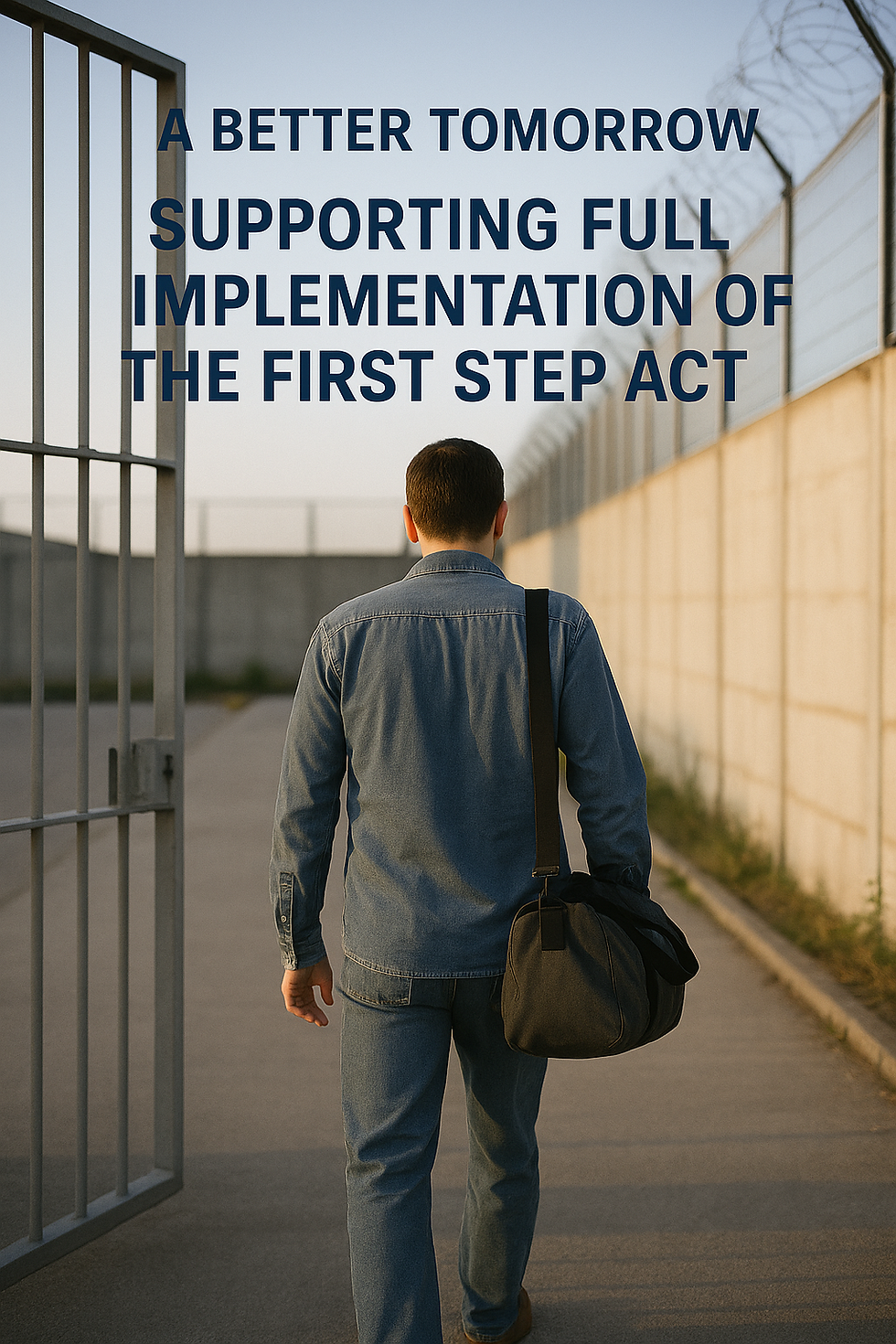How to Fight for Your Credits – Part II
- Bob Jesenik

- Sep 28, 2025
- 4 min read
Updated: Nov 12, 2025

This update builds on Part III of my How to Fight for Your Credits series, originally published in November 2024. Since then, a lot has changed — including the results of a national election and the arrival of a new presidential administration. Here’s what matters most for anyone tracking their First Step Act (FSA) time credits:
Key Developments Since 2024
New Leadership at the BOP — The Bureau of Prisons now has a new Director, William Marshall III, and a new Assistant Director, Joshua Smith — notably the first former felon to serve in BOP leadership, which is both historic and inspiring. Both have publicly committed to fully implementing the First Step Act and ensuring its benefits reach the people it was designed to help.
Attorney General Pam Bondi’s Commitment — Attorney General Bondi and the Department of Justice have reaffirmed their total commitment to properly and completely implementing the FSA.
Stacking of Benefits Announced (June 2025) — The BOP announced it will now stack Second Chance Act (SCA) benefits on top of FSA credits. This means eligible individuals can receive:
Up to 12 months in halfway house or 6 months in home confinement under the SCA,
Plus FSA time credits for prerelease custody or up to 12 months off supervised release.
To ensure accuracy, the BOP also created an internal task force to manually calculate these benefits across all 115 facilities instead of leaving it to individual case managers.
Ninth Circuit Ruling: Gonzalez v. Herrera (Aug 2025) — In a landmark decision, the Ninth Circuit ruled in Leon Abel Gonzalez v. Juan Herrera, WL 2396495, that:
Inmates earn FSA credits from the date of sentencing through prerelease custody until the date of supervised release, under 18 U.S.C. § 3632(d)(4)(A); and
Those credits must be applied to either prerelease custody or supervised release — not limited to just accelerating supervised release by 12 months.
Why the Ninth Circuit Ruling Matters
This ruling settles one of the biggest open questions about FSA implementation: What happens to the credits earned during prerelease custody?
Previously, the BOP admitted that inmates earn credits during prerelease custody but refused to apply them, citing § 3624(g). The Bureau argued that credits must be earned before prerelease custody begins — making all “future credits” earned during that period essentially worthless.
In Gonzalez, the Ninth Circuit rejected that logic. The court ruled that if the BOP fails to use projected credits to accelerate prerelease custody, then those unused credits must instead reduce the individual’s term of supervised release.
That’s a major shift — and one that could impact thousands.
What This Means for the BOP
This decision presents a challenge for the BOP. Because supervised release falls under the jurisdiction of the courts, not the Bureau, the BOP can’t directly reduce supervised release terms.
To comply with the ruling, the only practical option is for the Bureau to begin incorporating projected credits into prerelease custody calculations — moving up transition dates accordingly.
In Part III of this series, I explained how timeframes for incarceration could differ by 10 months or more depending on whether projected credits were used. The new ruling validates that point — the BOP now has to reconcile its math with the law.
What You Can Do Right Now
Your best approach depends on where you are in your sentence or reentry process.
If you’re still incarcerated
If you’re within 24 months of your projected prerelease custody date (as shown on your FSA Time Credit Assessment worksheet), consider beginning the Administrative Remedy Process now.
This will preserve your ability to file a § 2241 petition asking a court to order the BOP to follow the Gonzalez decision and use projected credits under § 3632(d)(4), rather than ignoring them under § 3624(g).
If you’re already in prerelease custody
File an Administrative Remedy seeking a reduction in your term of supervised release based on Gonzalez.
The BOP will likely deny the request, but that sets the stage for a § 2241 petition in federal court to enforce your rights.
If you’re on supervised release
Speak with your attorney about filing for a reduction in your supervision term for any unapplied time credits earned while in BOP custody.
Broader Actions Everyone Should Take
To ensure full implementation of the FSA across the Bureau:
Contact DOJ Leadership — Write or email Attorney General Pam Bondi and BOP Director William Marshall III requesting that they:
Modify BOP Program Statements to apply projected prerelease credits when calculating prerelease transition dates; and
Update the FSA Time Credit Assessment Worksheet to show credits earned through prerelease custody and the corresponding transition date.
Contact Your Members of Congress — Ask your U.S. Representative and Senators to add a simple amendment to any future crime or reentry legislation requiring the BOP to account for both § 3624(g) and projected prerelease credits in transition-date calculations.
Looking Ahead
I remain hopeful and optimistic that this new administration — and the BOP’s current leadership — will act in good faith to correct these issues and honor the spirit of the First Step Act.
With continued advocacy and awareness, we can ensure that every individual receives the time-credit benefits they’ve earned and that the law is implemented fairly, completely, and transparently.



Comments